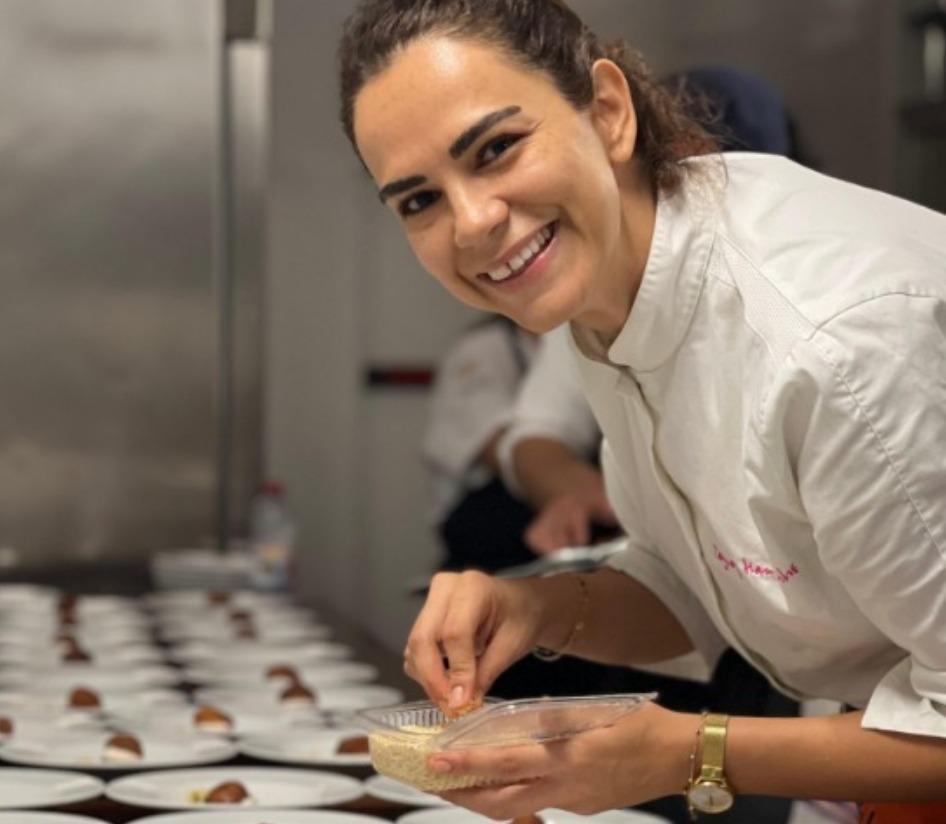
For cheese lovers, the taste of cheese is a unifying element, no matter what type. There are cultures, mainly Asian cuisines, that do not have cheese in their diets, but for the rest, cheese is pretty essential. In the Turkish diet, we start the day with “Beyaz Peynir” literally “White Cheese” together with slices of meaty tomatoes and fresh cucumbers and continue to flirt with this cheese throughout the day. During summer, a slice of juicy watermelon is paired with a slab of this tangy salty cheese, and the day ends with the national spirit Rakı, the anise-infused grape distillation which turns milky when mixed with water. Even if there is no meze on the rakı table, a slice of briny white cheese together with fragrant white melon is enough to make the ultimate trio. White cheese sneaks into börek, layered savory pies, and crumbled into various dishes. In the countryside, humble curd cheese “Lor” or “Çökelek” is wrapped into flatbreads with spring onions and fresh herbs to make an instant roll, usually for breakfast. Then there is “Kaşar Peyniri” the second most popular cheese from breakfast tables to oozing toasts. The cheese of Anatolian pastureland is definitely “Tulum” aged in caves; sheep’s milk curd cheese encased in goatskin. The list goes on and on, the cheese varieties and dishes that make use of cheese are endless; cheese is enjoyed in a variety of ways on the Turkish table. Of course, there are also cheese-based sweets, the strong suit of Turkish cuisine.
For cheese lovers, there is a Slow Food Cheese event held in the northern city of Bra every two years where people flock in to taste, talk and discover about cheese. At the event, it is possible to see and taste all the regional cheeses of Italy, but there is also the opportunity to get to know cheese producers from all over the world. The producers not only taste each other's unusual cheeses but also share their experiences and problems in the sector during the sessions. From traditional methods that are cultural heritage that need to be preserved to new techniques, to the latest innovations in the food industry, everything related to cheese production can be found here. The event also includes topics such as raising awareness about sustainable and ethical food production, supporting local farmers and producers, protecting biodiversity and promoting traditional cheese-making methods. In short, every topic related to cheese is on the agenda.
Of course, in addition to cheese and cheesemaking, animal husbandry and dairy farming, food lovers are also in search of new flavors on the streets of Bra. For producers, but also for foodies and chefs, there is a lot to discover, from the streets of the city to restaurants and even university classrooms. The opportunities to learn about different cheeses from around the world, taste them and get to know the food cultures associated with them are endless. As well as the chance to try cheesy delicacies, there is also the chance to listen to their stories, learn about their cultural connections and get to know their traditions. Slow Cheese offers an opportunity to establish the connection between cheese flavors and culture, as well as to ensure their sustainability and awareness. This is where Zeynep Hande Kılıç, the chef of Mipalé, a tiny chef restaurant in Istanbul, who participated on behalf of Türkiye this year, made a great contribution. She was invited to Slow-Cheese 2023 among 35 Slow Food businesses and chefs in Türkiye who are part of the Chefs' Alliance and had the opportunity to emphasize local and sustainable food culture on a global platform. She presented the Kemalpaşa dessert with cheese in a joint meal with three Italian chefs, combining our traditional Kemalpaşa dessert with the Italian Mascarpone cheese with cinnamon, tahini and hazelnuts to create a twist from the traditional sweet. She also talked about the tradition of cheese halva and cheese desserts in Turkish cuisine, including Çanakkale-style cheese halva and did a tasting workshop of chard rolls with gorgonzola cheese cream. Such was the interest she generated that Dan Saladino, the legendary editor of BBC Radio 4, asked to record a radio interview with her. Saladino had done radio interviews with me several years ago on various topics, and anyone who has worked with him knows how meticulous he is in his job. Lately, his newly published book "Eating to Extinction" about disappearing products and foods is a phenomenal masterpiece. During the research for this book, he also came to Türkiye in search of Kavılca wheat. Saladino not only made a radio recording with Zeynep, but after Italy, he also traveled to Türkiye and went to Karaman to track down Divle cheese, which is matured in caves. Here is a cheese story that shows the importance of such individual presentations abroad, a story of flavor that stretches like cheese from Türkiye to Italy and back to Türkiye. I am sure we will soon read an article by Dan Saladino about Divle cheese, and all the cultural connotations around this very special cheese!